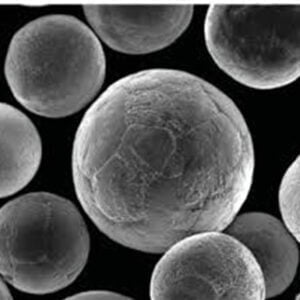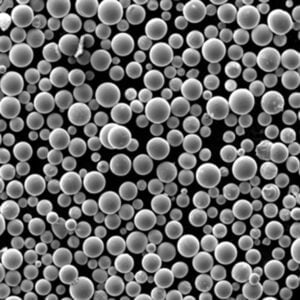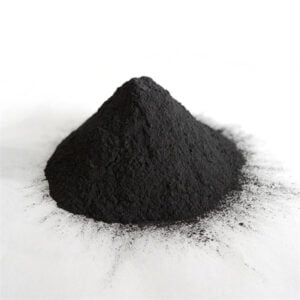Process med roterande elektrod och plasma (PREP)
Innehållsförteckning
Översikt över plasma-roterande elektrodprocess
Den Process med plasmaroterande elektrod (PREP) är en avancerad metod för att producera högkvalitativa metallpulver med exceptionell renhet och enhetlighet. Dessa pulver är avgörande för olika applikationer, inklusive additiv tillverkning, flygkomponenter och medicinska implantat. PREP går ut på att smälta änden av en roterande metallstav med hjälp av en plasmabåge, vilket gör att droppar stöts ut och stelnar till fina pulver. Denna process är känd för att producera sfäriska partiklar med utmärkt flytbarhet och packningsdensitet.
Viktiga detaljer om plasma-roterande elektrodprocess:
- Process: Använder en plasmabåge för att smälta en roterande metallstav.
- Produktion: Sfäriska metallpulver med hög renhet.
- Applikationer: Additiv tillverkning, flyg, medicinska implantat, etc.
- Fördelar: Hög renhet, utmärkt flytbarhet, enhetlig partikelstorlek.
- Begränsningar: Hög kostnad, komplex utrustning, begränsad till specifika metaller.
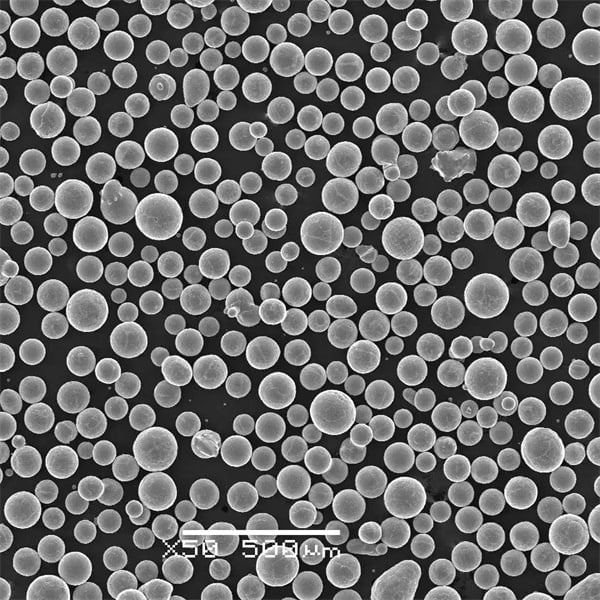
Typer av metallpulver som produceras av PREP
Vanliga metallpulver:
| Metallpulver | Sammansättning | Fastigheter | Egenskaper |
|---|---|---|---|
| Titan (Ti) | Ren Ti eller Ti-6Al-4V | Hög hållfasthet, korrosionsbeständighet | Biokompatibel, lätt |
| Nickel (Ni) | Ren Ni eller Ni-baserade superlegeringar | Motståndskraft mot höga temperaturer | Utmärkt krypmotstånd |
| Kobolt (Co) | Pure Co eller Co-Cr legeringar | Slitstyrka, styrka | Används i dentala och ortopediska implantat |
| Aluminium (Al) | Ren Al eller Al-Si legeringar | Låg vikt, god ledningsförmåga | Utmärkt maskinbearbetbarhet |
| Rostfritt stål | Olika SS-grader (304, 316, etc.) | Korrosionsbeständighet, hållfasthet | Mångsidig, flitigt använd |
| Koppar (Cu) | Ren Cu | Utmärkt elektrisk ledningsförmåga | Används i elektriska komponenter |
| Volfram (W) | Ren W eller W-legeringar | Hög densitet, värmebeständighet | Används inom flyg och försvar |
| Järn (Fe) | Ren Fe eller Fe-baserade legeringar | Magnetiska egenskaper, styrka | Används ofta i tekniska applikationer |
| Zirkonium (Zr) | Ren Zr eller Zr legeringar | Korrosionsbeständighet, biokompatibel | Används i kärnreaktorer och medicinska |
| Molybden (Mo) | Rena Mo- eller Mo-legeringar | Hållfasthet vid höga temperaturer | Används inom flyg och elektronik |
Tillämpningar av Process med plasmaroterande elektrod
Typiska tillämpningar:
| Tillämpning | Beskrivning |
|---|---|
| Additiv tillverkning | Producerar komplexa, höghållfasta komponenter lager för lager med metallpulver |
| Komponenter för flyg- och rymdindustrin | Tillverkar lätta, högpresterande delar för flygplan och rymdfarkoster |
| Medicinska implantat | Skapa biokompatibla implantat med exakta geometrier, såsom dentala och ortopediska apparater |
| Fordonsindustrin | Producerar lätta, hållbara delar för fordon |
| Energisektorn | Tillverkning av komponenter till kärnreaktorer och kraftverk |
| Elektronik | Tillverkar ledande delar och kylflänsar för elektroniska enheter |
| Verktyg och formar | Skapar hållbara, högprecisionsverktyg och formar för olika industrier |
Specifikationer, storlekar, kvaliteter och standarder
Detaljerade specifikationer:
| Metallpulver | Storlekar (µm) | Betyg | Standarder |
|---|---|---|---|
| Titan (Ti) | 15-45, 45-90, 90-150 | Årskurs 1, Årskurs 2 | ASTM B348, ASTM F67 |
| Nickel (Ni) | 10-50, 50-100 | Inconel 625, 718 | ASTM B883 |
| Kobolt (Co) | 10-45, 45-100 | CoCrMo, CoCrW | ASTM F75, ASTM F1537 |
| Aluminium (Al) | 10-50, 50-150 | 6061, 7075 | ASTM B928, ASTM B209 |
| Rostfritt stål | 15-45, 45-90 | 304, 316L | ASTM A276, ASTM A240 |
| Koppar (Cu) | 15-45, 45-90 | C10100, C11000 | ASTM B152, ASTM B187 |
| Volfram (W) | 10-45, 45-150 | Ren W | ASTM B777 |
| Järn (Fe) | 10-50, 50-100 | Ren Fe, FeSi | ASTM A848 |
| Zirkonium (Zr) | 15-45, 45-90 | Zr702, Zr705 | ASTM B550 |
| Molybden (Mo) | 10-45, 45-100 | Ren Mo | ASTM B387 |
Leverantörer och prisuppgifter
Leverantörer av metallpulver:
| Leverantör | Erbjudande om metallpulver | Prissättning (per kg) | Ytterligare tjänster |
|---|---|---|---|
| AP&C | Ti, Ni, Co, Al, SS, Cu, W, Fe, Zr | $150 – $500 | Anpassad partikelstorleksfördelning |
| GKN Additiv | Ti, Ni, Co, Al, SS, Cu, W, Fe, Zr | $100 – $450 | FoU-stöd, anpassad legeringsutveckling |
| Snickeriteknik | Ti, Ni, Co, Al, SS, Cu, W, Fe, Zr | $120 – $480 | Materialprovning, certifiering |
| LPW-teknik | Ti, Ni, Co, Al, SS, Cu, W, Fe, Zr | $130 – $490 | Pulveråtervinning, karakterisering |
| Höganäs | Ti, Ni, Co, Al, SS, Cu, W, Fe, Zr | $110 – $470 | Applikationsteknik, support |
Fördelar och begränsningar med processen för roterande elektroder med plasma
För- och nackdelar:
| Aspekt | Fördelar | Begränsningar |
|---|---|---|
| Partikelform | Producerar sfäriska partiklar med hög flytbarhet och packningsdensitet | Begränsad kontroll över partikelstorleksfördelning |
| Renhet | Pulver med hög renhet på grund av den inerta atmosfären och minimal kontaminering | Hög kostnad för produktion och utrustning |
| Enhetlighet | Enhetlig partikelstorlek och sammansättning | Komplexitet i hantering och underhåll av utrustningen |
| Mångsidighet | Lämplig för ett brett spektrum av metaller och legeringar | Inte lämplig för alla metaller; vissa kanske inte bildar sfäriska partiklar |
| Kvalitet | Konsekvent kvalitet med minimala föroreningar | Inledande installations- och driftskostnader kan vara oöverkomliga för småskalig produktion |
| Tillämpningar | Används ofta i högteknologiska applikationer som kräver precision och tillförlitlighet | Begränsat till branscher som kan motivera de högre kostnaderna |
Detaljerad analys av metallpulvermodeller
Titan (Ti) och titanlegeringar:
Titanpulver som produceras av PREP, såsom rent titanlegeringar (Grad 1) och titanlegeringar (Ti-6Al-4V), är högt värderade för deras höga hållfasthet-till-vikt-förhållande, korrosionsbeständighet och biokompatibilitet. Dessa egenskaper gör dem idealiska för flyg- och rymdkomponenter, medicinska implantat och högpresterande bildelar. Titanpulver kännetecknas av sin utmärkta flytbarhet, vilket är avgörande för additiva tillverkningsprocesser.
Nickel (Ni) och Nickelbaserade superlegeringar:
Nickelpulver, inklusive de från Inconel 625 och 718, är väsentliga för applikationer vid hög temperatur på grund av deras exceptionella motståndskraft mot oxidation och krypning. Dessa pulver används i stor utsträckning inom flygindustrin för turbinblad och andra komponenter som måste tåla extrema förhållanden. Den höga renheten och enhetligheten hos PREP-producerade nickelpulver säkerställer optimal prestanda i dessa krävande miljöer.
Kobolt (Co) och kobolt-kromlegeringar:
Koboltpulver, särskilt CoCr och CoCrMo-legeringar, är kända för sin slitstyrka och styrka. Dessa egenskaper gör dem lämpliga för medicinska implantat, såsom dentala och ortopediska apparater, där hållbarhet och biokompatibilitet är avgörande. Den sfäriska formen och höga densiteten hos PREP-producerade koboltpulver bidrar till deras utmärkta prestanda i dessa applikationer.
Aluminium (Al) och aluminiumlegeringar:
Aluminiumpulver, såsom 6061 och 7075 legeringar, är prisade för sin lätta vikt och goda ledningsförmåga. Dessa pulver används i stor utsträckning inom fordons- och flygindustrin för att producera lättviktskomponenter som förbättrar bränsleeffektiviteten och prestanda. De fina, sfäriska partiklarna som produceras av PREP säkerställer överlägsen flytbarhet och packningsdensitet, vilket gör dem idealiska för additiv tillverkning.
Rostfritt stål:
Pulver av rostfritt stål, inklusive kvaliteterna 304 och 316L,
erbjuder en balans mellan styrka, korrosionsbeständighet och mångsidighet. Dessa pulver används i olika branscher, från konstruktion till medicinsk utrustning, på grund av deras hållbarhet och lätthet att tillverka. PREP-processen säkerställer att de rostfria stålpulvret har jämn kvalitet och enhetlig partikelstorlek, vilket är avgörande för pålitlig prestanda.
Koppar (Cu) och kopparlegeringar:
Kopparpulver, såsom C10100 och C11000, är avgörande för deras utmärkta elektriska ledningsförmåga och termiska egenskaper. Dessa pulver används ofta i elektronik, elektriska komponenter och värmeväxlare. Den höga renheten och sfäriska formen hos PREP-producerade kopparpulver förbättrar deras prestanda i dessa applikationer, vilket säkerställer effektiv ledningsförmåga och värmeöverföring.
Volfram (W) och volframlegeringar:
Volframpulver är kända för sin höga densitet och värmebeständighet, vilket gör dem lämpliga för applikationer inom flyg- och försvarsindustrin. De sfäriska partiklarna som produceras av PREP säkerställer enhetlig packning och flytbarhet, vilket är avgörande för tillverkning av högpresterande komponenter som raketmunstycken och strålningsskärmning.
Järn (Fe) och järnbaserade legeringar:
Järnpulver, inklusive rent järn och järn-kisellegeringar, används ofta i tekniska tillämpningar på grund av deras magnetiska egenskaper och styrka. Dessa pulver är viktiga för att producera komponenter som magnetiska kärnor och strukturella delar. PREP-processen säkerställer hög renhet och enhetlig partikelstorlek, vilket är avgörande för konsekvent prestanda.
Zirkonium (Zr) och Zirkoniumlegeringar:
Zirkoniumpulver, såsom Zr702 och Zr705, värderas för sin korrosionsbeständighet och biokompatibilitet. Dessa egenskaper gör dem idealiska för medicinska tillämpningar, inklusive implantat och kirurgiska instrument, såväl som för användning i kärnreaktorer. Den sfäriska formen och höga renheten hos PREP-producerade zirkoniumpulver säkerställer tillförlitlig prestanda i dessa kritiska applikationer.
Molybden (Mo) och molybdenlegeringar:
Molybdenpulver är uppskattade för sin höga temperaturstyrka och konduktivitet. Dessa pulver används inom flyg- och elektronikindustrin för komponenter som måste tåla extrema förhållanden. PREP-processen producerar molybdenpulver med enhetlig partikelstorlek och hög renhet, vilket säkerställer deras effektivitet i krävande tillämpningar.
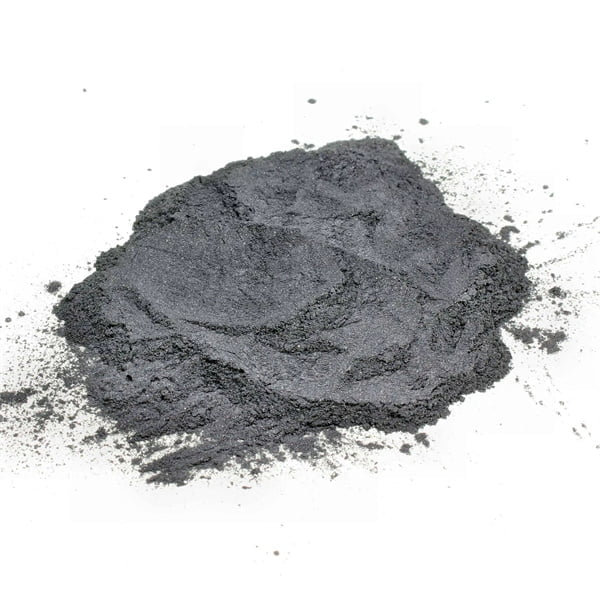
Vanliga frågor
| Fråga | Svar |
|---|---|
| Vad är Process med plasmaroterande elektrod (PREP)? | PREP är en metod för att framställa sfäriska metallpulver med hög renhet genom att smälta änden av en roterande metallstav med hjälp av en plasmabåge. |
| Vilka metaller kan bearbetas med PREP? | PREP kan bearbeta ett brett spektrum av metaller, inklusive titan, nickel, kobolt, aluminium, rostfritt stål, koppar, volfram, järn, zirkonium och molybden. |
| Vilka är fördelarna med att använda PREP för tillverkning av metallpulver? | PREP erbjuder hög renhet, enhetlig partikelstorlek, utmärkt flytbarhet och förmågan att producera sfäriska partiklar, vilket gör den idealisk för högteknologiska applikationer. |
| Vilka är begränsningarna för PREP? | Processen är dyr, kräver komplex utrustning och är inte lämplig för alla metaller. Dessutom kan det vara svårt att kontrollera partikelstorleksfördelningen. |
| Hur används PREP-producerade pulver i additiv tillverkning? | Dessa pulver används i additiv tillverkning för att skapa komplexa, höghållfasta komponenter lager för lager, vilket ger precision och tillförlitlighet i kritiska applikationer. |
| Varför är sfäriska partiklar viktiga i metallpulver? | Sfäriska partiklar säkerställer bättre flytbarhet och packningsdensitet, vilket är avgörande för konsekvent prestanda i applikationer som additiv tillverkning och pulvermetallurgi. |
| Kan PREP användas för att tillverka metallpulver för medicinska implantat? | Ja, PREP-producerade pulver som titan och kobolt-kromlegeringar används ofta för att skapa biokompatibla medicinska implantat med exakta geometrier. |
| Vilka är de viktigaste tillämpningarna för PREP-producerade nickelbaserade superlegeringar? | Nickelbaserade superlegeringar producerade av PREP används i högtemperaturapplikationer, såsom turbinblad inom flygindustrin, på grund av deras utmärkta oxidations- och krypmotstånd. |
| Hur står sig kostnaden för PREP-producerade pulver jämfört med andra metoder? | PREP-producerade pulver är i allmänhet dyrare på grund av de höga kostnaderna för processen och utrustningen, men de erbjuder överlägsen kvalitet och prestanda för kritiska applikationer. |
| Finns det några miljöproblem med PREP-processen? | PREP utförs i en inert atmosfär, vilket minimerar kontaminering och miljöpåverkan, men processens energikrävande karaktär kan vara ett problem. |
Slutsats
Plasma-roterande elektrodprocessen (PREP) framstår som en förstklassig metod för att producera högkvalitativa metallpulver som är nödvändiga för olika avancerade applikationer. Från flygkomponenter till medicinska implantat, renheten, enhetligheten och sfäriska formen hos PREP-producerade pulver säkerställer överlägsen prestanda och tillförlitlighet. Även om processen kommer med höga kostnader och komplexa utrustningskrav, gör dess fördelar den till en värdefull teknik i branscher där precision och kvalitet är av största vikt. I takt med att tekniken utvecklas kommer ytterligare innovationer inom PREP sannolikt att förbättra dess effektivitet och bredda dess tillämpbarhet, vilket stärker dess roll i framtiden för materialvetenskap och ingenjörskonst.
få veta mer om 3D-utskriftsprocesser
Dela på
MET3DP Technology Co, LTD är en ledande leverantör av lösningar för additiv tillverkning med huvudkontor i Qingdao, Kina. Vårt företag är specialiserat på 3D-utskriftsutrustning och högpresterande metallpulver för industriella tillämpningar.
Förfrågan för att få bästa pris och anpassad lösning för ditt företag!
Relaterade artiklar

Högpresterande segment för munstycksvingar: Revolutionerande turbineffektivitet med 3D-utskrift i metall
Läs mer "Om Met3DP
Senaste uppdateringen
Vår produkt
KONTAKTA OSS
Har du några frågor? Skicka oss meddelande nu! Vi kommer att betjäna din begäran med ett helt team efter att ha fått ditt meddelande.

Metallpulver för 3D-printing och additiv tillverkning
FÖRETAG
PRODUKT
cONTACT INFO
- Qingdao City, Shandong, Kina
- [email protected]
- [email protected]
- +86 19116340731






